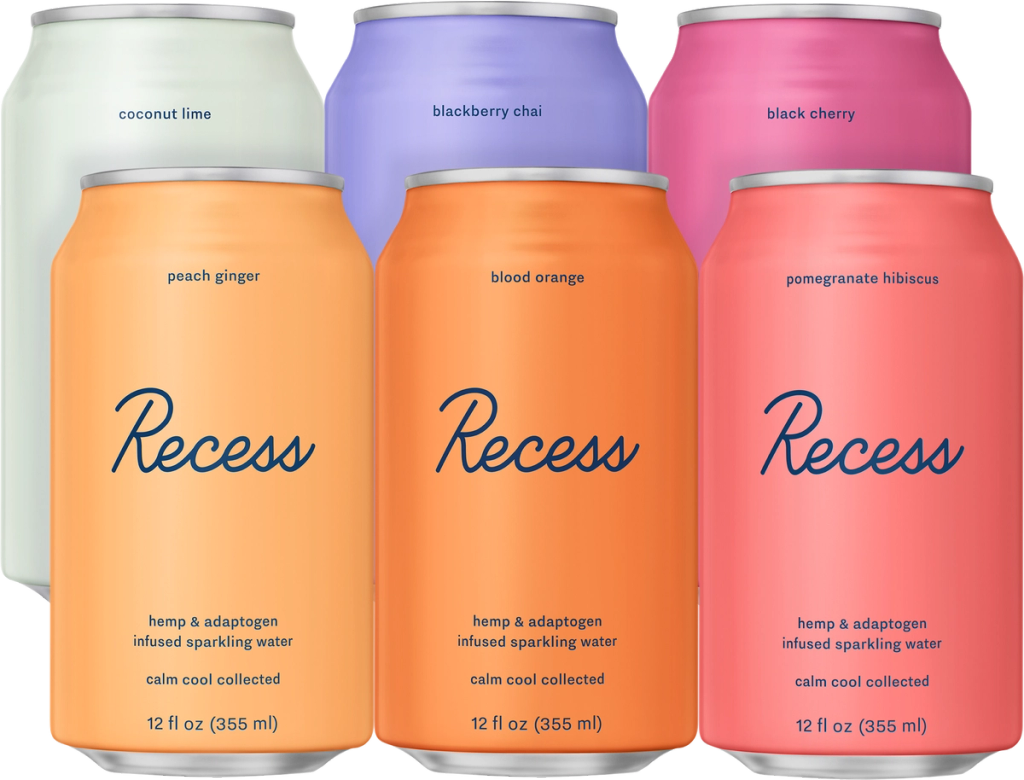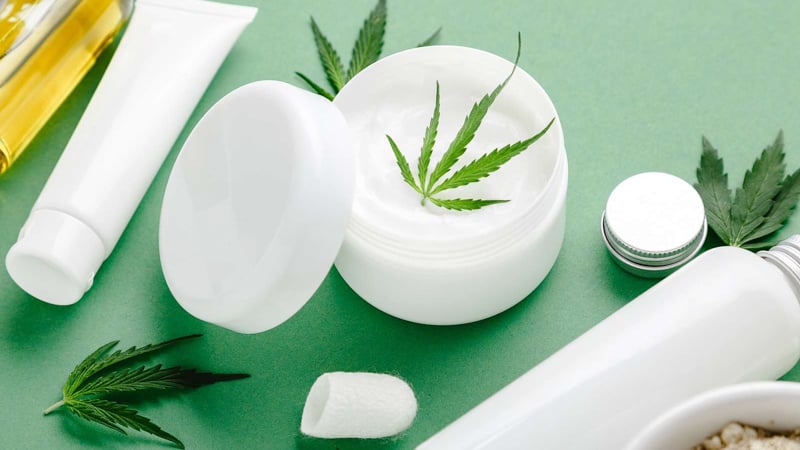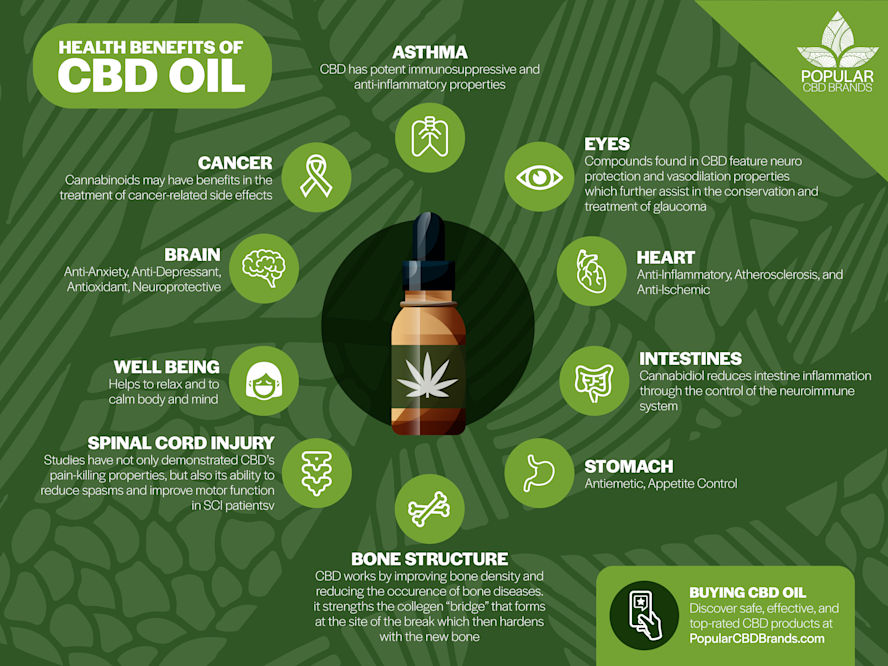
Cannabidiol (CBD), which is the most commonly used in CBD, can stay in your system for up to seven days. Full-spectrum CBD can take up to weeks to get out of your system. It builds up in your bloodstream, where it is stored as fat. How much of it stays in your system is dependent on how many times you consumed it, how frequent you used it, as well as whether or not you were using any other medications.
Full-spectrum CBD stays in your system for a few days or weeks
Full-spectrum CBD is legal but will not be found in most drug tests. It contains trace amounts of THC. However, because some CBD products contain trace amounts of THC, they may cause a positive result on a drug test. It all depends what type of CBD product is used and your metabolic rate. Full-spectrum CBD is also retained in your system for days to weeks, depending upon how much you take.

It is detected in urine
The most common way to find out if you've been using cannabis is by performing a urine drug screen. This immunoassay uses antibodies to identify specific drugs and metabolites. The test measures the concentration of THC, or the psychoactive component of cannabis, in your urine. Negative results are those that show THC levels below a predetermined threshold. If the drug screen is positive for THC, it may be necessary to run a second test. The confirmatory test, which uses a second method to measure THC concentration, is more precise.
It can lead to false positives at drug tests
Cannabidiol or CBD is a naturally occurring chemical derived form the hemp plant. This substance is a relative of cannabis. It does not produce the intoxicating effect of THC, but it can be a false positive on a drug test in small doses. Cannabidiol helps with pain and symptoms. THC can be found in marijuana plants. In some states, urine can contain up to 5% THC.
It is safe to use
CBD, also known as cannabidiol or cannabis, is a compound that occurs in cannabis plants and helps with various ailments. It is becoming a popular supplement to many people suffering from various ailments due to its numerous benefits. In June 2018, Epidiolex was approved by the FDA as a pure CBD oil. It is used in treating epilepsy. It has also been used for a variety of purposes including pain relief and inflammation. It is not yet legal in every state, but there are dietary supplements that contain it.
It isn’t as high-as marijuana.
Cannabidiol or CBD is a compound found within hemp and marijuana plants. CBD does not cause the same "high" as tetrahydrocannabinol. However, CBD's benefits aren't limited to this fact. Read on to learn more about this wonder substance!

It does not cause sedation
Cannabidiol doesn't cause sedation. This is good news for people suffering from sleep disorders such as insomnia and restless leg syndrome. This is due in part to cannabidiol's positive interaction with the body’s endocannabinoid. Additionally, it doesn't cause sedation. It has been shown to improve complex sleep-related behaviours in people with rapid eye movement disorder (REM) such as REM sleep.
FAQ
What are the best ways to use CBD?
CBD is an effective alternative to treating anxiety. It can also be used for pain relief, epilepsy treatment, inflammation, depression and other conditions.
There are many ways to consume CBD. CBD can be consumed in many ways.
Consuming CBD has many benefits. It has been shown to help people suffering from chronic pain, PTSD, anxiety, and more.
Are there any common mistakes companies make when entering the US cannabinoid marketplace?
Uncertainty about the regulations for cannabis products is the first mistake. This could lead to you having to modify your product formulation.
The second mistake is not knowing how to properly label your product. You must know whether your product contains CBD, THC, or both.
Finally, you must know how to package your product correctly. If your product contains THC you should ensure that it's packaged in child-resistant containers.
Even if your product doesn't contain THC, you must still comply with all packaging laws. There are many states in which cannabidiol is legal.
It is important to track recalls of your products. It is important to inform customers as soon as possible if there is an issue with your product.
What are the differences in CBD price between different states?
Prices for CBD products will vary depending on where they are located. Prices can vary by as much as ten times depending on where you live.
Prices tend to increase as you move further north. CBD can be found in Alaska at $35 per kilogram, and Hawaii at $200 per grams.
This trend is continuing across the country. Prices for grams range from $5 to $2,500.
This is why?
Variable levels of regulation can explain why prices differ so greatly. Some states require that CBD products contain no THC (the psychoactive ingredient of marijuana). Other states don't care what level of THC is present.
Some companies sell products in one state, and then ship them to another.
Statistics
- A recent systematic review of human trials also reported that individuals with epilepsy receiving CBD (5–20 mg·kg−1·day−1) were more likely to experience decreased appetite than those receiving placebo (i.e., ~20 vs. 5% of patients) (ncbi.nlm.nih.gov)
- HR −16 mmHg; 95% CI −26, −6; I2 = 92%) (ncbi.nlm.nih.gov)
- A recent study [161] also found that in vitro CBD treatment (i.e., ≤ 2 h exposure to 10 μM) induced ~40% vasorelaxation in isolated (pre-constricted) (ncbi.nlm.nih.gov)
- While the primary injury may not be treatable, interventions that attenuate secondary sequelae are likely to be of benefit [203].Only one study (ncbi.nlm.nih.gov)
- OralWhere HED is the human equivalent dose, and Km is a correction factor estimated by dividing the average body mass (BM) of the species (60, 0.020, and 0.150 kg for 11 humans, mice, and rats, respectively) and by its surface area (see: Nair et al. (ncbi.nlm.nih.gov)
External Links
How To
What are the common issues in the CBD industry?
The current market for CBD products is growing at an incredible rate. But, businesses who want to enter this market still face numerous challenges. There are many challenges facing businesses looking to enter this space, including low consumer awareness, high costs of entry and limited access to capital.
Many people don't know much about CBD or how it works. They are unable to make an informed decision about buying CBD products.
Most CBD companies rely heavily upon word-of mouth marketing. This can be costly as it involves advertising and staffing to promote the brand.
Another issue for new entrants is the high cost production. CBD products require a lot of raw materials. CBD oil can only be made if hemp is grown in the right climate and soil conditions.
For CBD oil to be produced, you need to plant enough hemp. This costs about $1,000 an acre. Many small farmers are unable or unwilling to invest in this product.
A lack of capital access is another issue that new entrants will face in the CBD marketplace. Due to the stigma surrounding the industry, banks discourage many people who wish to start businesses.
The sale of CBD products is still subject to regulatory uncertainty. There are currently no clear guidelines regarding how CBD products should be marketed.
Some states have passed legislation restricting the sale of CBD products, but this has yet to become national policy.
Only Nevada and Maine have so far legalized recreational marijuana.
Some states, such as Michigan and Massachusetts, are looking at similar measures.
These changes could mean that CBD manufacturers will be more competitive.
Many entrepreneurs prefer to work at home over starting a business.